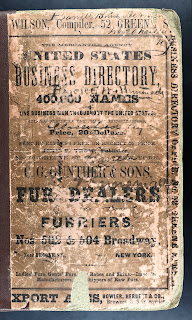After visiting the idyllic towns in Italy where my grandfathers were born, I had to wonder why they left their families and came to America.
It turns out their occupations paint two very different pictures. These two stories may represent many immigrants to America.
 |
| Our ancestors sought opportunity, work, and a decent living. |
The Skilled Craftsman
My maternal grandfather Adamo left Basélice, Italy twice. The first time he was 23 years old and already listed his occupation as shoemaker. He had two choices:
- Stay in Basélice and be one of a small number of shoemakers in a small town of about 2,000 people.
- Go to New York City and be one of many shoemakers serving thousands of people.
Unfortunately, Adamo's plans were rudely interrupted by World War I. He returned to Italy to fight and became a prisoner of war under brutal circumstances.
Eventually he made his way back to New York City. He continued working as a shoemaker and had his own store in the Bronx for a while. Later he did other types of leather work, making saddles and holsters for the police department.
For Adamo, a skilled young tradesman, coming to America meant greater opportunity doing what he knew how to do.
The Unskilled Laborer
My paternal grandfather Pietro left Colle Sannita, Italy at the age of 18. He had no skilled occupation. He was probably working the land to provide food for his family while his father Francesco made several visits to America for work.
On each of Francesco's trips to work in the United States, he was a laborer. He did whatever type of work was available, including railroad labor and mining.
Pietro did the same as his father, working at a bakery near his uncle's home, at a steel company near his cousin's home, and for the railroad. But he wanted a trade that wasn't so dirty and back-breaking. Oral history tells me that Grandpa's opinion of working in the railroad roundhouse was, "This job stinks on-a the ice."
Pietro became a jewel setter, working with his hands at a clean workbench. He liked it well enough that he kept a small workbench in his cellar at home and continued to make trinkets when I was a girl.
For Pietro, an unskilled laborer, coming to America meant opportunities in fields he might never have imagined.
Just as American families today are likely to relocate for a job at some point in their lives, our ancestors faced a similar situation. While they didn't have an IBM paying to move them to a new state, they did need to move in order to prosper.
It's not hard to understand that reality. Is it?

















